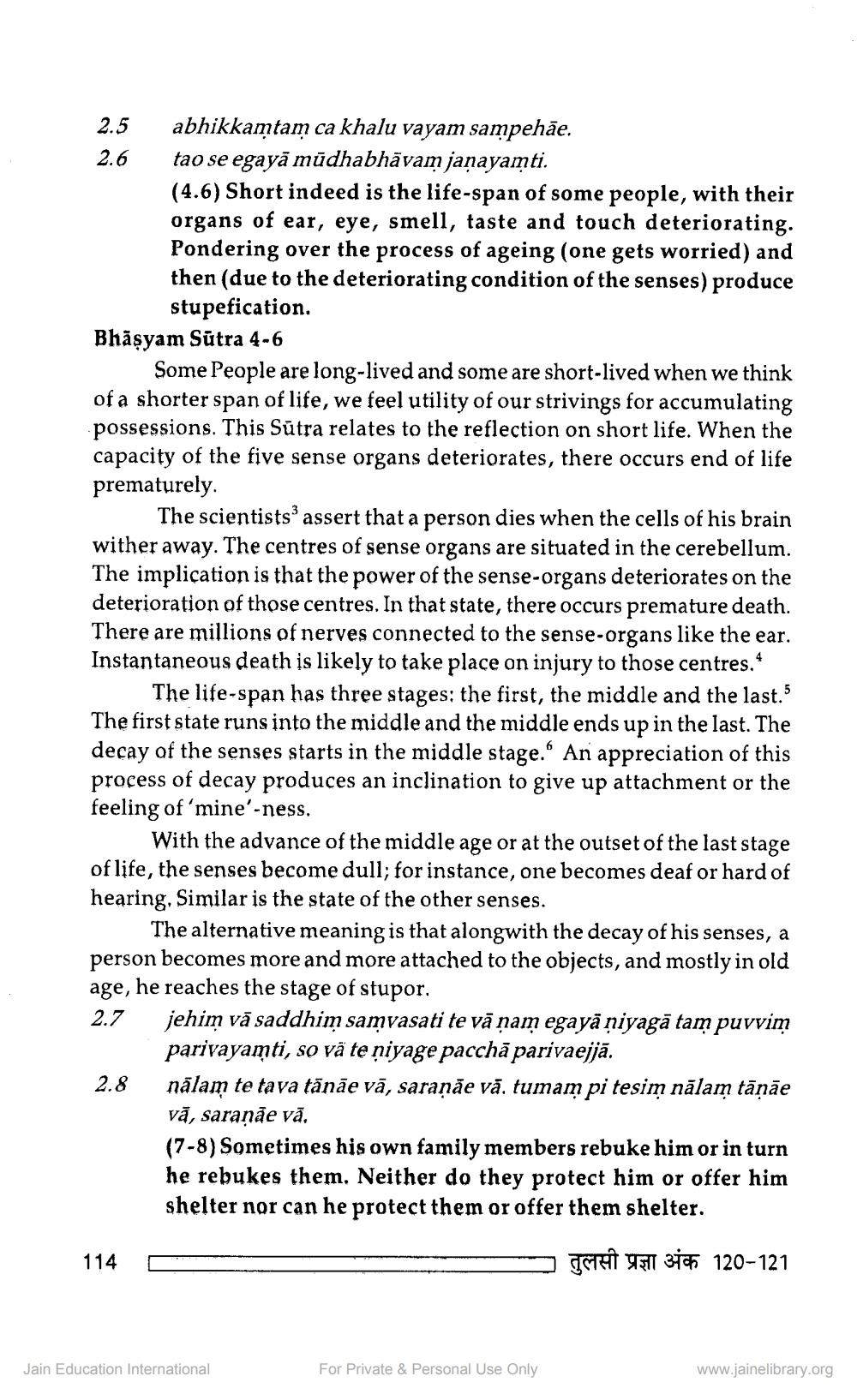________________
2.5
2.6
Bhasyam Sutra 4-6
abhikkamtam ca khalu vayam sampehāe.
tao se egaya mudhabhāvam janayamti.
(4.6) Short indeed is the life-span of some people, with their organs of ear, eye, smell, taste and touch deteriorating. Pondering over the process of ageing (one gets worried) and then (due to the deteriorating condition of the senses) produce stupefication.
Some People are long-lived and some are short-lived when we think of a shorter span of life, we feel utility of our strivings for accumulating possessions. This Sūtra relates to the reflection on short life. When the capacity of the five sense organs deteriorates, there occurs end of life prematurely.
The scientists assert that a person dies when the cells of his brain wither away. The centres of sense organs are situated in the cerebellum. The implication is that the power of the sense-organs deteriorates on the deterioration of those centres. In that state, there occurs premature death. There are millions of nerves connected to the sense-organs like the ear. Instantaneous death is likely to take place on injury to those centres." 4
The life-span has three stages: the first, the middle and the last.5 The first state runs into the middle and the middle ends up in the last. The decay of the senses starts in the middle stage." An appreciation of this process of decay produces an inclination to give up attachment or the feeling of 'mine'-ness.
With the advance of the middle age or at the outset of the last stage of life, the senses become dull; for instance, one becomes deaf or hard of hearing, Similar is the state of the other senses.
The alternative meaning is that alongwith the decay of his senses, a person becomes more and more attached to the objects, and mostly in old age, he reaches the stage of stupor.
2.7
2.8
114
jehim vā saddhim samvasati te va nam egaya niyagā tam puvvim parivayamti, so vä te niyage pacchā parivaejjā.
nālam te tava tānāe vā, saraṇāe vā. tumam pi tesim nālam tāṇāe vā, saraṇāe vā,
(7-8) Sometimes his own family members rebuke him or in turn he rebukes them. Neither do they protect him or offer him shelter nor can he protect them or offer them shelter.
तुलसी प्रज्ञा अंक 120-121
Jain Education International
For Private & Personal Use Only
www.jainelibrary.org




